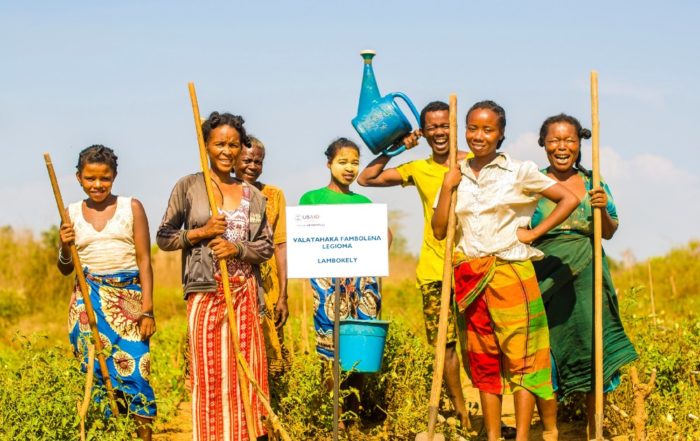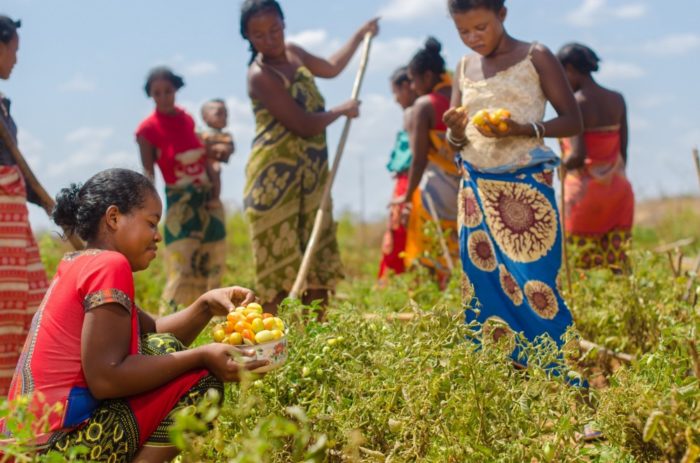
The Menabe Antimena Protected Area contains some of the largest sections of dry forests in Madagascar and is home to numerous unique plant and animal species. However, the forests are under increasing pressure as trees are cleared and the land burned to grow cash crops such as maize and peanuts. The situation has intensified during the COVID-19 pandemic due to the reduction in the number of forest patrols and an increase in economic insecurity in the region. Over a recent three-month period approximately 56 hectares of dry forest — an area about the size of 60 city blocks — were illegally burned.
To help address this threat, USAID is working with NCBA CLUSA to help female farmers create sustainable income generating activities like market gardens.

In a new article for Medium, A.G. Klei and Mialy Randriamampianina explore multiple climate change related issues facing farmers in Madagascar. The USAID Mikajy project is assisting female farmers in learning how to become stewards of the land — nurturing it, watering it, feeding it, and caring for it — so that the land can continue to feed them and their family for generations.
“We’re excited about the progress farmers—particularly women farmers—are making in the harsh Menabe landscape,” said Ryan Roberge, Senior Manager for Enterprise Development at NCBA CLUSA. “These income generating activities and other activities like village savings and loan associations are helping to build community resilience and conserve natural resources.”
Read more: https://medium.com/usaid-2030/seeds-for-the-future-63c475264c45


